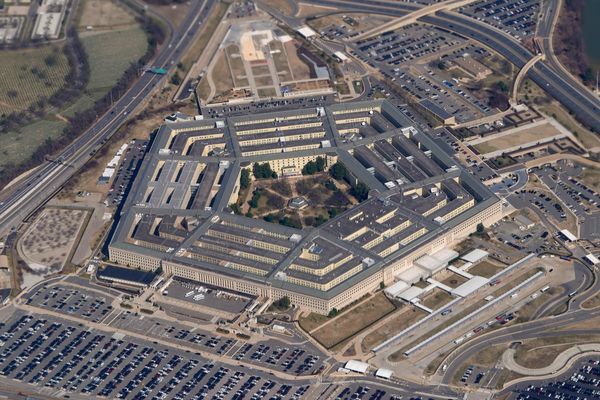War whistle-blower-turned-independent-politician Andrew Wilkie has used the 20th anniversary of the invasion of Iraq to demand an overhaul of how Australia decides to declare war.
Australian and British troops joined a US-led invasion of Iraq in March 2003, over suspected weapons of mass destruction (WMDs).
Around 2,000 Australian military personnel were deployed by the Howard government.
However, as the government mulled joining an invasion, former army and intelligence officer Andrew Wilkie resigned from Australia's then-peak intelligence assessment agency — the Office of National Assessments — and went public with his concerns about the evidence that politicians were using.
Now, 20 years on — and from inside parliament — Mr Wilkie has called for greater power for the parliament to decide if the nation goes to war.
He said it would give Australia similar powers as those in convention or law in the United States, the United Kingdom, France and in Germany.
"We are the outlier: In Australia, the Prime Minister, on a whim, with rushing blood to his head, can just declare war," Mr Wilkie said.
Speaking in parliament, Prime Minister Anthony Albanese said politicians should be allowed to express their views on going to war, but only after the cabinet has made the decision.
"Decisions about war and deployment of Australian forces are among the most-serious any government can make," Mr Albanese said.
"I've made clear my own view, that parliamentarians should be given a chance to express their views following a cabinet decision to go to war."
Mr Albanese noted the Labor Party's opposition to the 2003 decision to go to war.
"Twenty years on from the Iraq War, we can all reflect on the many tragedies of that conflict and its ongoing effects," he said.
Previous pushes by MPs and ex-army officials to broaden war powers have been unsuccessful.
Mr Wilkie also used the anniversary to call for a review of Australia's decision to join the war, despite warnings of the dire humanitarian consequences and questions around evidence being used to make the decision.
Parliamentary inquiry to examine how wars are declared
Last week, Mr Albanese was in San Diego with US President Joe Biden and UK Prime Minister Rishi Sunak to announce details of the AUKUS military pact.
Mr Wilkie said there was an opportunity to learn from the past, particularly at a time when Australia was deepening its military ties with the United States and the United Kingdom.
"This anniversary is very timely, in that it is reminding us of the need for reform of war powers, at a time when we seem to be getting even closer to Washington with our security relationship," Mr Wilkie said.
"I think the community would be much more comfortable with AUKUS, would be much more comfortable with this purchase of nuclear submarines, if it was accompanied with war powers reform.
"The community could be assured that if, for example, there was a war over Taiwan, that it would be the parliament that would decide whether or not it's in our national interest to participate in that war or to not participate in that war."
The federal Greens unsuccessfully sought to suspend standing orders in the Senate to bring on debate about the Iraq war, urging "the Australian parliament and government to learn the lessons of the past and to never again be dragged into another country's unjust war of aggression".
They also called for the withdrawal of ADF personnel still deployed in Iraq under Operation Okra and Operation Accordion.
Speaking in the senate, Shadow Foreign Affairs Minister Simon Birmingham said there were lessons learned from the invasion but claimed the Iraqi people now had "more say over their future" after the fall of former Iraqi president, Saddam Hussein.
An inquiry into how Australia decides to engage in armed conflict is expected to report back to parliament within weeks.
Former Labor leader Simon Crean — who opposed the invasion while in opposition in 2003 — said the test of Australia's alliance with the United States would be ensuring the nation does not blindly follow them into another armed conflict again.
He joined calls for a review of the invasion decision, saying the basis upon which Australia joined was never "properly divulged".
Also, he said, there were lessons to learn to ensure the same mistake was not made again.
"If we're to actually enter this new, difficult era … in the context of a seemingly strengthened alliance, we've got to make sure our own position is fundamentally established based on the best available information, not just following blindly," Mr Crean said.







